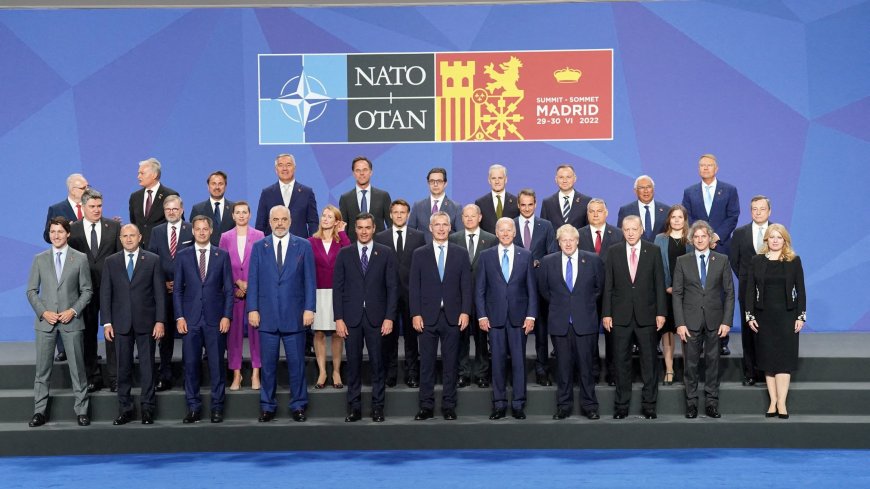European Leaders Convene in UK to Address Migration and Ukraine Amid Concerns About US Direction

European leaders gathered at Blenheim Palace on Thursday for the fourth European Political Community (EPC) summit, expressing strong support for Ukraine and voicing concerns about the future direction of the United States amid its upcoming presidential election.
Newly elected U.K. Prime Minister Keir Starmer welcomed around 45 heads of government to the historic venue in Woodstock, Oxfordshire, to discuss critical issues such as migration, energy security, and the threat from Russia. Starmer, aiming to restore relations between the U.K. and its European neighbors following Brexit, emphasized the need for unity in the face of growing challenges.
“Our first task here today is to confirm our steadfast support for Ukraine, to unite once again behind those values that we cherish and to say we will face down aggression on this continent together,” Starmer declared. He underscored that the Russian threat “reaches right across Europe.”
Key Discussions and Attendees
Ukrainian President Volodymyr Zelenskyy was a key participant at the summit, focusing on bolstering European support for Ukraine's defense and discussing strategies to safeguard democracy. The U.K. has accused Moscow of attempting to destabilize European democracies through cyberattacks, disinformation, and sabotage.
Notable attendees included German Chancellor Olaf Scholz, French President Emmanuel Macron, Italian Prime Minister Giorgia Meloni, Polish Prime Minister Donald Tusk, and NATO Secretary-General Jens Stoltenberg. European Commission President Ursula von der Leyen was notably absent as she was securing her second term from European lawmakers.
Starmer's Vision and Initiatives
Starmer’s center-left government is keen to rebuild ties with the EU, strained by years of contentious Brexit negotiations. A central priority for Starmer is establishing a new U.K.-EU security pact, with hopes of reaching an agreement soon. "We are confident that a new chapter will be opened with the U.K.," said European Council President Charles Michel.
The U.K. plans to take a more active role on the global stage, particularly concerning Ukraine’s conflict with Russia and combating human trafficking. Starmer emphasized that his government would ensure the U.K. remains “a friend and a partner” to Europe, reaffirming commitment to the European Convention on Human Rights, a stance contrasting with previous Conservative government policies.
Addressing Migration and Security
Starmer announced plans to enhance cooperation with Europol to combat people smuggling and beef up border security. He criticized the previous administration's unrealized plan to send migrants to Rwanda and called for a concerted European effort to address the crisis. “It is now, I think, a crisis. We must combine our resources, share intelligence, share tactics, shut down the smuggling routes and smash the gangs,” Starmer asserted.
International and Domestic Reactions
European leaders were treated to British hospitality, including strawberries with cream and a reception hosted by King Charles III. As leaders mingled in Blenheim Palace’s ornate gardens, thoughts turned to the U.S., where the recent assassination attempt on Republican presidential nominee Donald Trump has highlighted political tensions ahead of the November election. Trump’s skepticism about NATO and his choice of Sen. JD Vance, an opponent of U.S. military aid to Ukraine, as his running mate have raised alarms among U.S. allies.
“European countries must stand on their own legs more than ever,” said Netherlands Prime Minister Dick Schoof, a sentiment echoed by several other leaders. However, Hungary’s pro-Russia Prime Minister Viktor Orbán diverged, expressing support for a potential Trump victory.
Zelenskyy's Call for Unity
Zelenskyy urged European nations to maintain unity, implicitly criticizing leaders who have engaged with Russia. “If someone wants to make some trips to the capital of war to talk and perhaps promise something against our common interests, or to the expense of Ukraine or other countries, then why should we consider such a person?” he questioned. Zelenskyy affirmed that the EU and NATO could address their issues without such individuals.
The EPC summit concluded with a renewed commitment to tackling Europe’s pressing issues, reaffirming solidarity with Ukraine, and addressing the multifaceted challenges facing the continent.













































